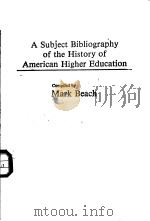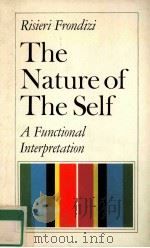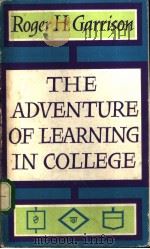《The American College A Psychological and Social Interpretation of The Higher Learning》
| 作者 | Nevitt Sanford 编者 |
|---|---|
| 出版 | 未查询到或未知 |
| 参考页数 | |
| 出版时间 | 1962(求助前请核对) 目录预览 |
| ISBN号 | 无 — 求助条款 |
| PDF编号 | 820174688(仅供预览,未存储实际文件) |
| 求助格式 | 扫描PDF(若分多册发行,每次仅能受理1册) |
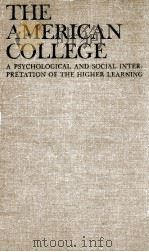
Introduction1
part ⅠGENERAL5
1Higher Education as a Social Problem&Nevitt Sanford10
Ⅰ.Do our colleges educate?10
Ⅱ.Some obstacles to reform.17
Ⅲ.The promise of a scientific approach.24
2Higher Education as a Field of Study&Nevitt Sanford31
Ⅰ.Objectives.32
Ⅱ.The entering student.42
Ⅲ.Academic procedures.48
Ⅳ.Student society and student culture.57
Ⅴ.Student performance in relation to educational objectives.62
Ⅵ.Interactions of students and educators.67
Ⅶ.The effects of college education.69
Ⅷ.Conclusion.72
3The Viability of the American College&David Riesman and Christopher Jencks74
Ⅰ.The college as an initiation rite.75
Ⅱ.The college as a sub-culture.75
Ⅲ.Some evolutionary approaches.89
Ⅳ.College ethnography.102
A.The University of Massachusetts.104
B.Bos-ton College.147
C.San Francisco State College.158
part ⅡTHE ENTERING STUDENT193
4Motivational Factors in College Entrance&Elizabeth Douvan and Carol Kaye199
Ⅰ.What does college represent to the American teen-ager?200
Ⅱ.The choice of school.216
5The Diverse College Student Population&T.R.McConnell and Paul Heist225
Ⅰ.Historical perspective.225
Ⅱ.Variation in scholastic aptitude.229
Ⅲ.Diversity in"non-intellective"characteristics.236
Ⅳ.Conclusion.248
6Developmental Status of the Entering Freshman&Nevitt Sanford253
Ⅰ.Statistical description of the entering freshman.255
Ⅱ.The freshman's stage of development.256
Ⅲ.The situation of the entering freshman.266
Ⅳ.The college as a stimulus to development.271
part ⅢACADEMIC PROCEDURES283
7Changing Functions of the College Professor&Robert Knapp290
Ⅰ.Functions of the professor and the evolution of his role in America.291
Ⅱ.Images of the colIege professor.299
Ⅲ.Characteristics of superior teachers.303
Ⅳ.Current and future stresses in the professorial vocation.307
8Procedures and Techniques of Teaching:A Survey of Experimental Studies&W.J.McKeachie312
Ⅰ.Principles of learning relevant to methods of teaching.313
Ⅱ.Methodological cautions.317
Ⅲ.Research on methods of teaching.320
Ⅳ.Student characteristics relevant to effective teaching.351
Ⅴ.Conclusion:the role of faculty attitudes.353
9Personality and Interpersonal Relations in the College Classroom&Joseph Katz365
Ⅰ.General and specific characteristics of the college teacher.368
Ⅱ.The classroom from the teacher's perspective.378
Ⅲ.The classroom and the teacher from the student's perspective.383
Ⅳ.The teacher and his subject matter.368
10The Teacher as a Model&Joseph Adelson396
Ⅰ.Barriers to understanding.371
Ⅱ.Uses and limitations of the concept of identification.372
Ⅲ.Identity and the seeking,accepting,and resisting of models by students.377
Ⅳ.The many sides of the good teacher.380
Ⅴ.The antimodel and the disappointing model.389
11The Curriculum in the Perspective of the Theory of Personality Development&Joseph Katz and Nevitt Sanford418
Ⅰ.The pursuit of knowledge and the curriculum.419
Ⅱ.Theory of personality and the curriculum.424
Ⅲ.The curriculum:modes of presentation.426
Ⅳ.The curriculum:content areas.430
Ⅴ.Conclusion:conditions of curricular reform.443
12Economic Pressures and the Professor&Anthony Ostroff445
Ⅰ.Introduction:the problem.447
Ⅱ.Academic salaries and how to live on them.421
Ⅲ.Consequences of economic deprivation for the professor's relations with his job.424
Ⅳ.Urgency of the economic problem.431
part ⅣSTUDENT SOCIETY AND STUDENT CULTURE463
13Student Peer-Group Influence&Theodore M.Newcomb469
Ⅰ.Theoretical and empirical bases.469
Ⅱ.Some conditions of peer-group formation.473
Ⅲ. Some conditions of peer-group influence.478
Ⅳ. Peer-group influence and educational ob-jectives.482
14Student Culture at Vassar&John H.Bushnell489
Ⅰ.The campus setting and arrangements for living.489
Ⅱ.Aca-demic and extracurricular activities.493
Ⅲ.Daily, weekly,and yearly cycles of student life.497
Ⅳ.Values and processes of the peer group.503
Ⅴ.Acculturation and enculturation.510
15Student Culture and Academic&Effort Everett Hughes,Howard Becker,and Blanche Geer515
Ⅰ.Level,direction,and style of effort.515
Ⅱ.Student culture in medical school:an illustrative case.521
Ⅲ.Consequences of student culture.528
part ⅤSTUDENT PERFORMANCE IN RELATION TO EDUCATIONAL OBJECTIVES531
16Personality,College Environments,and Academic Productivity&Donald Brown536
Ⅰ.The Vassar study of faculty-nominated ideal students.538
Ⅱ.The Vassar alumnae study.545
Ⅲ.Some social and cultural determinants of achievement.550
Ⅳ.The interaction of per-sonality and college environment.553
17Fields of Study and the People in Them&Carl Bereiter and Mervin B.Freedman,563
Ⅰ.Traits of ability and attitude related to academic field of specialization.564
Ⅱ.Differences in personality related to aca-demic field of specialization.571
Ⅲ.Choice of major field in the context of human development.580
Ⅳ.Conclusion:some possible next steps.591
18Students and the Occupational World&David Beardslee and Donald O'Dowd597
Ⅰ.Why occupations matter.599
Ⅱ.Vocational aspirations of freshmen.607
Ⅲ.A study of students'occupational stereotypes.610
Ⅳ.Faculty influence on student occupational images.618
Ⅴ.Changes in choice of career.620
Ⅵ.Conclusion:occupa-tional aspirations and learning.623
19Dropouts from College&John Summerskill627
Ⅰ.The problem.627
Ⅱ.Rates of attrition.629
Ⅲ.Factors associated with dropping out of college.631
Ⅳ.Directions for future research.648
part ⅥINTERACTIONS OF STUDENTS AND EDUCATORS659
20Some Social-Psychological Theory for Selecting and Guiding College Students&Joshua A.Fishman666
Ⅰ.The setting of current selection and guidance problems.666
Ⅱ.The role of nonintellective factors.669
Ⅲ.A preliminary theoretical model.679
Ⅳ.Conclusion:a moratorium on prediction.688
21Environments for Learning&George G.Stern690
Ⅰ.Group atmosphere,student personality,and learning.691
Ⅱ.Student ecology.702
Ⅲ.Varieties of constraint in higher education.708
Ⅳ.Conclusions:the design of effective environments for learning.725
22Patterns of Residential Education:A Case Study of Harvard&Christopher Jencks and David Riesman731
Ⅰ.Harvard prior to the house plan.734
Ⅱ.Genesis of the houses.738
Ⅲ.The houses as centers of leisure.743
Ⅳ.Myths and reality in the house stereotypes.751
Ⅴ.Some utopian con-clusions.762
23Freedom and Authority on the Campus&Harold Taylor774
Ⅰ.The social structure of student life.752
Ⅱ.The experimental approach.754
Ⅲ.The new generation.757
Ⅳ.Some research at Sarah Lawrence.759
Ⅴ.Conclusion:transactional relationships and intellectual growth.777
part ⅦTHE EFFECTS OF COLLEGE EDUCATION805
24Personality Changes in College Students&Harold Webster,Mervin B.Freedman,and Paul Heist811
Ⅰ.The use of mental tests for studying changes in students.813
Ⅱ.Changes in skills,in information,and in mental ability.816
Ⅲ.Changes in values and attitudes.821
Ⅳ.Research on the determination of personality change in college.834
Ⅴ.Some sug-gestions for future researcH.840
25Studies of College Alumni&Mervin B.Freedman847
Ⅰ.Characteristics of college alumni.850
Ⅱ.Personality develop-ment after college.862
Ⅲ.Relationships between experiences of the college years and events of later life.865
Ⅳ.The Mellon Foundation Interview Studies of Vassar College Alumnae.869
part ⅧHIGHER EDUCATION AND THE SOCIAL CONTEXT887
26The Place of Higher Education in a Changing Society&Campbell Stewart894
Ⅰ.Classical education.895
Ⅱ.Classical and western Christian education.903
Ⅲ.The Byzantine stream in education.905
Ⅳ.The medieval university.908
Ⅴ.The Protestant Reformation and the Renaissance.913
Ⅵ.The American universities.915
Ⅶ.Gathering the threads.936
27The Crisis of the State Universities:Analysis and Remedies&Frank Pinner940
Ⅰ.Dissensual knowledge and the university's publics.940
Ⅱ.The main bases of conflict.946
Ⅲ.The crucial tasks of the university.960
Ⅳ.Conclusion:a note on academic government.944
28A Social Theory of Higher Education&Christian Bay972
Ⅰ.Institutions and rationality.972
Ⅱ.Some key concepts.978
Ⅲ.Some social determinants of student incentives.986
Ⅳ.The en-during intellect.1000
EPILOGUE1007
29Research and Policy in Higher Education&Nevitt Sanford1009
Ⅰ.Some directions for future research.1010
Ⅱ.Social science in modern society.1013
Ⅲ.Research and practice in higher education.1019
Ⅳ.The organization and support of research.1027
Ⅴ.Expanding knowledge and the aims of education.1031
Index1035
1962《The American College A Psychological and Social Interpretation of The Higher Learning》由于是年代较久的资料都绝版了,几乎不可能购买到实物。如果大家为了学习确实需要,可向博主求助其电子版PDF文件。对合法合规的求助,我会当即受理并将下载地址发送给你。
高度相关资料
-
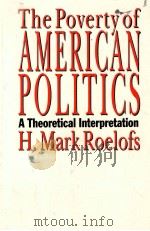
- THE POVERTY OF AMERICAN POLITICS:A THEORETICAL INTERPRETATION
- 1992 TEMPLE UNIVERSITY PRESS
-

- The American democracy : a commentary and an interpretation
- 1949 George Allen and Unwin
-
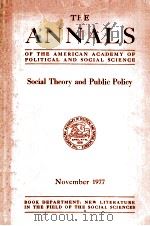
- The Annals of the American academy of political and social science :Social theory and public policy
- 1977 the american academy of political and social science
-
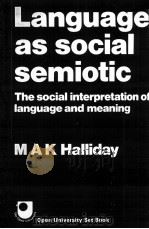
- Language As Social Semiotic The Social Interpretation Of Language And Meaning
- 1978 Edward Arnold Ltd.
-

- PERSONALITY: A PSYCHOLOGICAL INTERPRETATION
- 1937 HENRY HOLT AND COMPANY
-
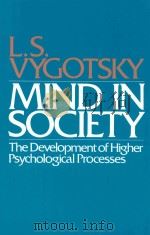
- Mind in Society The Development of Higher Psychological Processes Revised
- 1978 Harvard University Press
-
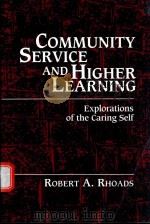
- COMMUNITY SERVICE AND HIGHER LEARNING EXPLORATIONS OF THE CARING SELF
- 1997 STATE UNIVERSITY OF NEW YORK PRESS
-
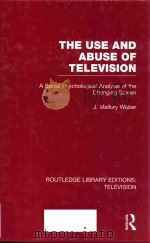
- THE USE AND ABUSE OF TELEVISION A SOCIAL PSYCHOLOGICAL ANALYSIS OF THE CHANGING SCREEN
- 1988 ROUTLEDGE
-

- THE CRIMINAL JUSTICE SYSTEM A SOCIAL PSYCHOLOGICAL ANALYSIS
- 1982 W.H.FREEMAN AND COMPANY
-

- THE DEMOCRATIC WAY OF LIFE:AN AMERICAN INTERPRETATION
- 1961 THE HOKUSEIDO PRESS
-

- THE AMERICAN COLLEGE AND UNIVERSITY A HISTORY
- 1990 UNIVERSITY OF GEORGIA PRESS
-
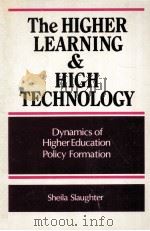
- THE HIGHER LEARNING AND HIGH TECHNOLOGY
- 1990 STATE UBIVERSITY OF BEW YORK PRESS
提示:百度云已更名为百度网盘(百度盘),天翼云盘、微盘下载地址……暂未提供。➥ PDF文字可复制化或转WORD
